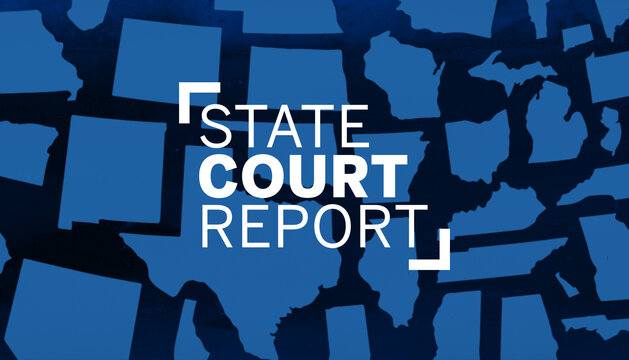
Justices Spar Over Judicial and Legislative Power in Iowa Abortion Ruling
The decision preserves a lower court order blocking a six-week abortion ban.

Part of
In June, the Iowa Supreme Court declined to take up a case in which a trial court refused to reopen its 2019 injunction blocking the state’s six-week abortion ban. The case, Planned Parenthood of the Heartland v. Reynolds, is the latest installment of judicial whiplash in the fight for abortion rights in Iowa. In 2018, the state supreme court found a fundamental right to abortion within its constitution, only to withdraw that right four years later after a swing in the court’s membership. And just several weeks after the Iowa Supreme Court reversed itself, the U.S. Supreme Court overturned Roe v. Wade, the nearly 50-year-old landmark ruling that the federal Constitution provides a right to abortion.
Before the court in the latest case was whether the trial court should lift its injunction given these changes to state and federal precedent. The court deadlocked on answering this question (Justice Dana Oxley was recused), so the injunction will remain in place. While neither side commanded a majority, the court’s dueling opinions highlighted sharp disagreements about both the meaning of the court’s abortion decisions and the role of the court vis-à-vis the legislature in responding to changes in judicial precedent.
To understand the dispute in Planned Parenthood, we must rewind the clock to 2018, when the Iowa legislature passed a six-week abortion ban. Planned Parenthood challenged the ban in state court. Meanwhile, the Iowa Supreme Court held in a separate challenge to a 72-hour waiting period that abortion is a fundamental right under the state constitution. A trial court then applied this ruling to block the six-week ban, and the state did not appeal. In 2022, the Iowa Supreme Court overruled its earlier ruling that abortion is a fundamental right under the state constitution. Just a few weeks after the Iowa high court ruling, the U.S. Supreme Court overruled Roe in Dobbs v. Jackson Women’s Health Organization. Following Dobbs, Iowa asked the trial court to dissolve the injunction of the six-week ban. The trial court declined to do so, and the state appealed to the Iowa Supreme Court.
In Iowa, as at the federal level, litigants have the right to appeal limited types of cases to the state supreme court, such as a final judgment of a criminal sentence except in certain situations. The court exercises its discretion to hear the remaining types of cases. While the justices agreed that the state did not have an automatic right to appeal the trial court’s decision, they sparred over whether it was appropriate to take the case and whether the trial court erred in declining to lift the injunction. While the justices all agreed that the U.S. Supreme Court’s interpretation of the federal Constitution does not necessarily bind the Iowa Supreme Court’s understanding of the Iowa Constitution, they differed over the standard of judicial review that should apply to abortion bans and restrictions under state law.
On the side of keeping the injunction in place, Justice Thomas Waterman, joined by Chief Justice Susan Christensen and Justice Edward Mansfield, argued that the court’s 2022 decision left in place an “undue burden” standard of review because this had been the operative standard before the court declared in the now-overturned 2018 decision that abortion is a fundamental right. Since the state conceded the six-week ban is unconstitutional under that standard, Waterman determined that the court could not dissolve the injunction. On the other side, Justice Christopher McDonald, joined by Justices Matthew McDermott and David May, argued that Dobbs set the standard for judicial review since the Iowa Supreme Court had ruled in 2015 that abortion rights under the Iowa Constitution were coextensive with those under the federal Constitution. Since Dobbs concluded that abortion bans and restrictions need only have a “rational basis” that does not require any extra scrutiny by courts, McDonald would have applied that standard to the six-week ban under Iowa law and lifted the injunction.
The justices also clashed about which side properly allocated power between the court and the legislature. Waterman characterized the state’s appeal as “an unprecedented effort to judicially revive a statute that was declared unconstitutional in a never-appealed final judgment four years ago.” He wrote that it would be inappropriate to revive a ban that was dead on arrival in 2018 since it clearly violated the U.S. Supreme Court’s decision in Roe v. Wade, which was still in effect at that time. Because the legislature did not then reenact a ban in the wake of the Dobbs decision overturning Roe, Waterman concluded that the court would be “legislating from the bench” to revive it. The three justices on the other side asserted that even when the trial court blocked the ban, the law never ceased to exist — and in the wake of Dobbs, it was therefore appropriate for the court to enforce it. They argued that since Dobbs removed the constitutional impediment to enforcing the ban, refusing to dissolve the injunction in fact “curtail[ed] the legislative power” to enact laws.
In response to the state supreme court’s ruling, Iowa’s legislature enacted another six-week abortion ban. Assuming the ban is challenged in court, its fate is unclear. But what is apparent is that this is unlikely to be the last time we see debates like the one in Planned Parenthood as judges grapple with old abortion rulings in the post-Dobbs legal environment. One other state — Arizona — is already reassessing an injunction issued before Dobbs that blocks an abortion ban.
More from the State Court Report collection
-
Utah Supreme Court to Hear Gerrymandering Challenge
State courts in Utah are the latest to consider whether partisan gerrymandering gives rise to an actionable claim under state law. -
Challenging Anti-Trans Legislation Under State Constitutions
Though advocates have found early success in federal courts, they may find even more effective ways to protect LGBTQ+ rights through state courts. -
When Do State Courts Depart from Federal Precedents?
State courts have varying and sometimes unclear rules for interpreting their constitutions independently.




